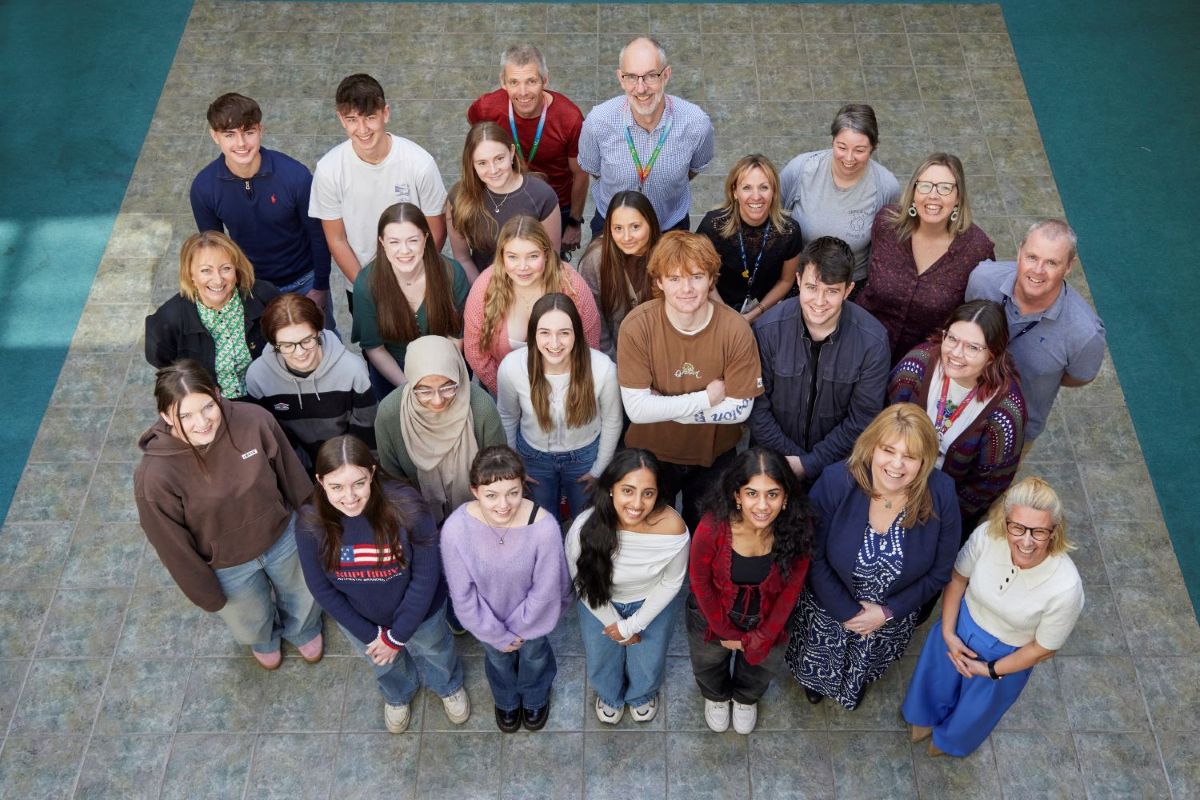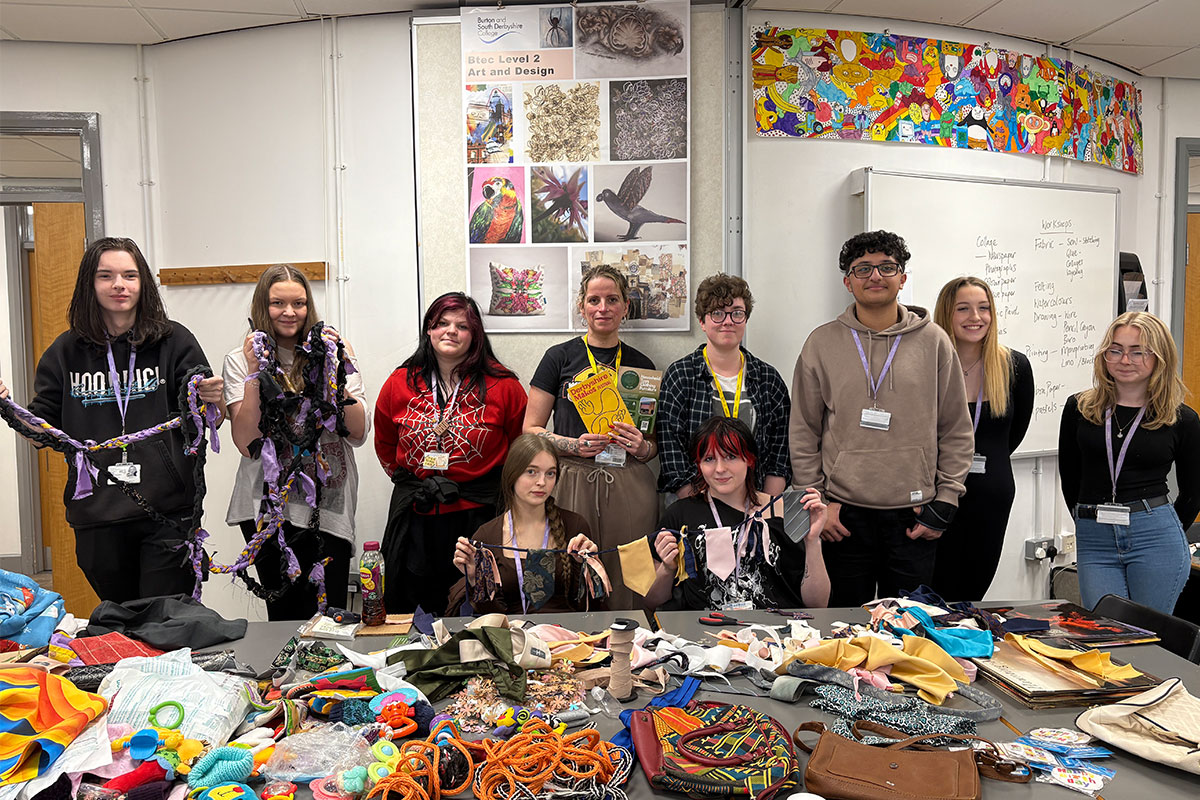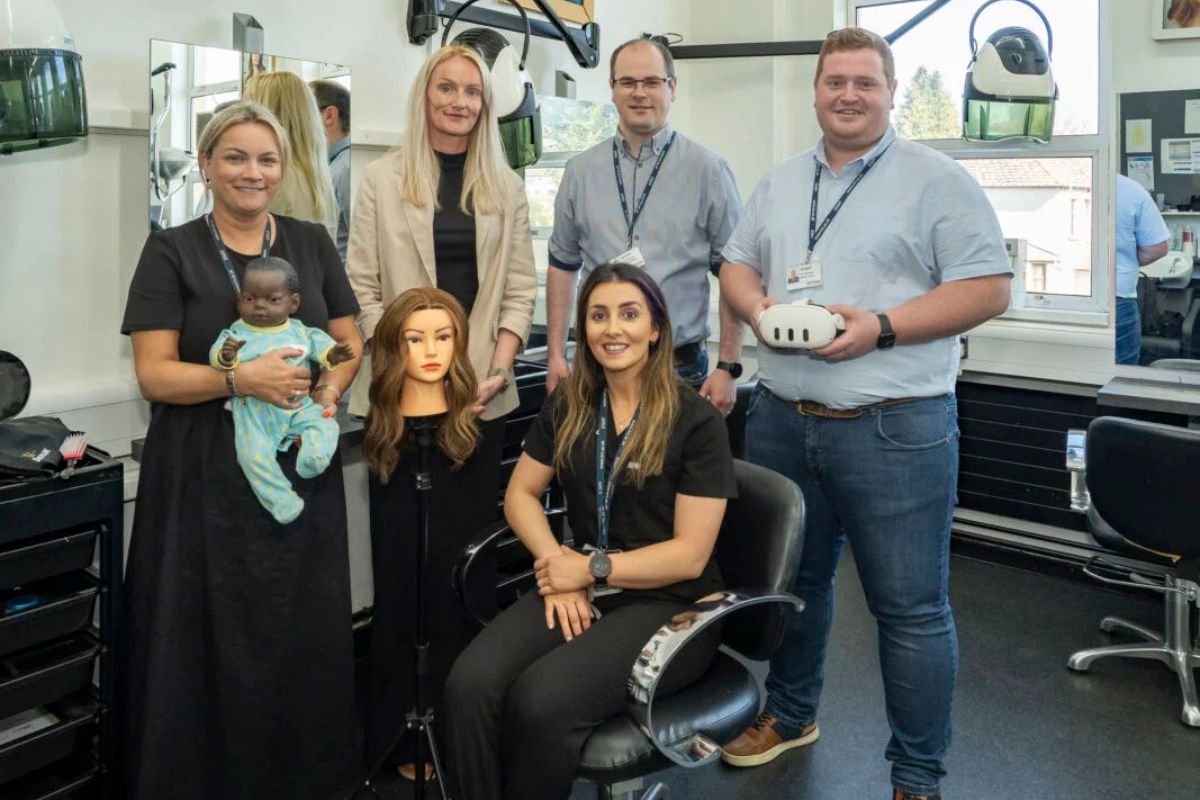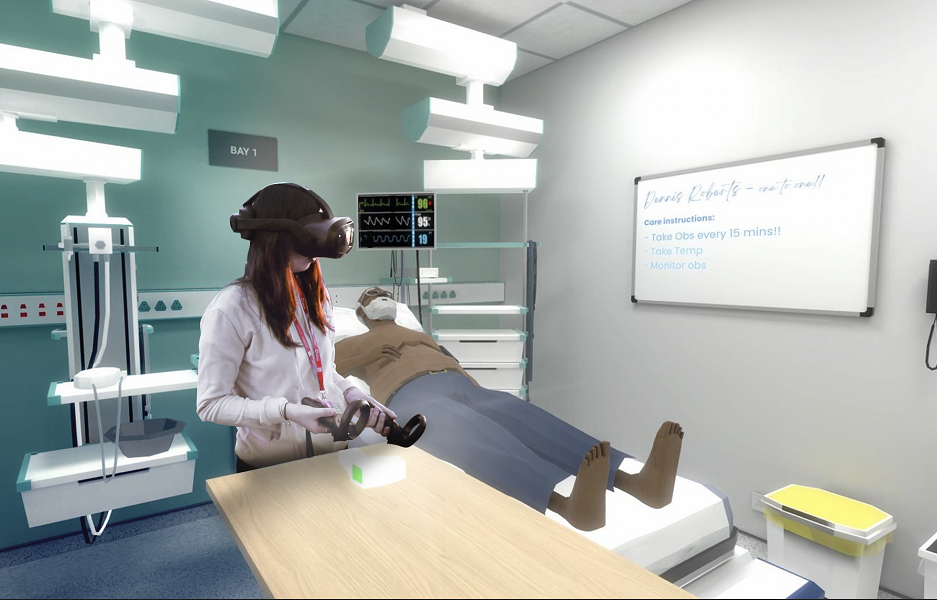Levelling up access to Further Education

Levelling up is certainly not a new concept to Further Education colleges. It’s a challenge they meet on a daily basis – giving over a million learners the skills to succeed. Four such colleges Coleg y Cymoedd, Newcastle College, City of Bristol College and South Devon are the focus of a whitepaper, Levelling Up Access to Further Education: Using technology to skill more digital talent, illustrating just how they solved the challenge of reaching more learners and delivering the tech skills they need for sustainable careers.
There is broad agreement, also among students, that universities and colleges of Further Education responded effectively to the digital challenge of “lockdown education”. It is too soon to determine in what ways remote learning is affecting student progress, but there is a sense of urgency around this question because the pandemic is far from over. Also, we discovered that virtual lessons have certain clear advantages over “real classrooms”: remote learning resolves issues around accessibility, frees up student time, and allows them to review the recorded lesson.
Two recent reports acknowledge that technology will play an ever-larger role in delivering Higher and Further Education but are short on answers on how EdTech can help universities and FE colleges to be digital game-changers now.
Levelling up Access to Further Education
Levelling Up Access to Further Education: Using technology to skill more digital talent, takes a forensic look at how colleges have used technology in the shape of platform, curriculum content and online tutor-support to deliver qualifications in web application development.
Each college overcame particular challenges relating to physical resources, subject expertise and increasing frequency of course delivery to meet learner demand. This white paper explores how the technology and business model of the Gateway Qualifications Level 5 Diploma in Web Application Development, delivered on the Code Institute platform, enabled Further Education colleges to transform course delivery in the same way that fintech transformed banking, and streaming revolutionised the media and music industries.
“We’re focussed on delivering skills for jobs using a combination of learning at scale technology and qualifications. For colleges, the real benefit of the learning platform comes from the flexibility it affords in terms of how programmes are delivered. But, equally, for learners, the increased flexibility makes it easier to mix upskilling into their already busy work and personal schedules.” explains Lee Lindsay, UK Education Partner Manager, Code Institute
Welsh Experience
In Wales, where the course is fully funded through the mechanism of the Personal Learner Account, the Gateway/Code Institute programme launched with a cohort of 20 learners under a year ago, and has since scaled to prepare 200 learners for a career in software development.
Coleg y Cymoedd offers a wide range of PLA-sponsored courses in priority sectors such as sustainable construction, business management, occupational health and safety, social care, and digital technology. “Some of these courses are taught by us,” says Kathryn Bishop, Business Development Manager at Coleg y Cymoedd, “but for Level 5 software development we lacked the required in-house expertise.”
As soon as the Gateway Qualifications Level 5 Diploma in Web Application Development was approved by the Welsh Government for PLA funding, Coleg y Cymoedd got the green light to offer this qualification through Code Institute.
English Colleges
Whereas Coleg y Cymmoed outsources all learning aspects to Code Institute, the delivery model at City of Bristol College is hybrid: the Code Institute provide the platform, mentoring and careers guidance to support the College in delivery, while the College take the lead on assessment and provides direct support to the students, which is led by Pasquale Fasulo, Head of Department for Digital and Creative.
“It’s evolved to the point where from January 2022 we’re going to do rolled monthly starts. We will continue to offer support but the approach will be more flexible. We will ring-fence and protect certain times for learners to drop in and book appointments with us and have progress reviews,” explains Pasquale.
The flexibility of the enrollment was something that appealed to South Devon College where Conrad Saunders, Programme Coordinator for Digital understood the benefit of rolling enrolments given the likely demand for the course in the region. “We’ve seen for a long time that there are a lot of learners going off and doing their degrees but afterwards there’s nothing for them. They don’t find employment,” Saunders says. “Often they have media-type degrees in digital production that just aren’t right for today’s jobs market.
“The [Code Institute] platform is proven, the students are eligible for an Advanced Learner Loan, so let’s run with it. We just hit the ground running 100 miles an hour.
“In terms of the model, rather than looking at a traditional termly intake, we look at a monthly intake as this was technically as feasible as anything else. It also allowed us to dip our toes in the water, and see if we could get the numbers. We’ve had a cohort in September, October, and November. We paused December but started up again in January with five students.” concludes Conrad.
This flexibility was what Newcastle College spotted when they were the first FE college to rollout the qualification in 2020. That, and a strong need for a relatively short and directed course that would lead to employment in the tech sector. Currently, Newcastle has three intakes per year which have grown from 14 to 25 learners per cohort. Achieving this growth in learner numbers have been chiefly down to their pre-existing relationships with local employers who are seeking these skills.
Level 3 for Adult Learners
Building on the success of this qualification, Code Institute and Gateway Qualifications have partnered once more on the development of a Level 3 Diploma in Software Development which will be rolled out in 2022. This gives learners from a variety of backgrounds an opportunity to lay the foundation for a career in tech through further study such as the Level 5, a higher level qualification or through work-based learning.
Paul Saunders, Business Development Manager of Gateway Qualification has worked with Code Institute on creating a solution that will be the right fit for learners and colleges looking to deliver these skills in a flexible format that allow them to reach more learners: “We are delighted to be able to build on our successful partnership with Code Institute to bring the same level of expert support to more learners and centres on the Level 3 Diploma and Certificate in Software Development.
The qualifications address a key government priority and provide excellent preparation for learners wishing to develop a career in the software industry and progress to the Level 5 Diploma, or to similar qualifications.”
From a college’s perspective, the quality is there, the demand is growing and the outcomes are proven. This solution offers colleges the ability to deliver with flexibility outside of college hours, meet learner demand and provide adult skills qualifications where learners can access Adult Skills funding streams including National Skills Fund, Adult Education Budget, PLA funding and Advanced Lerner Loan. All key criteria in successfully increasing access to digital skills.











Responses